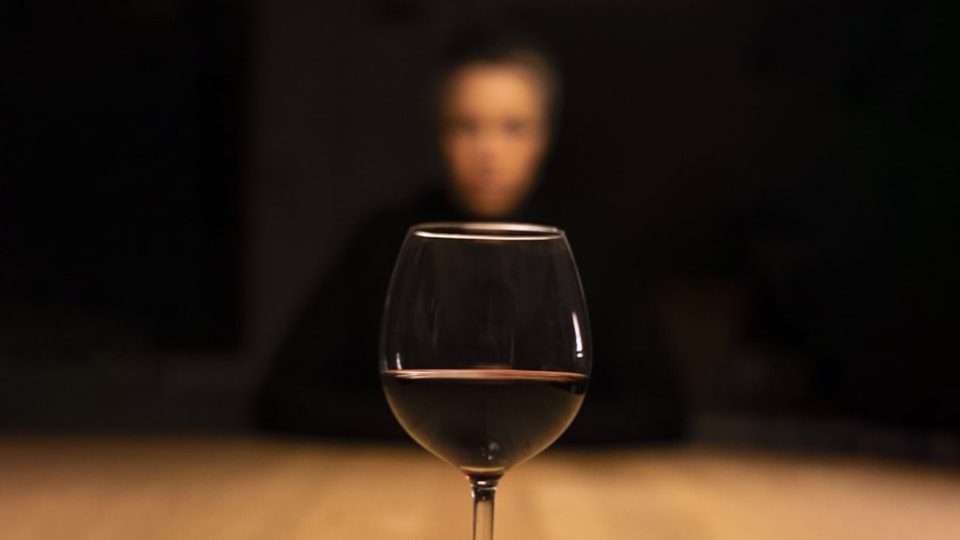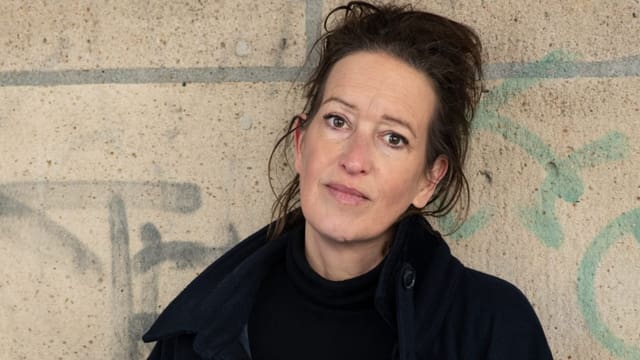Contents
The German author Christine Koschmieder was a single parent, successful – and addicted to alcohol for 30 years. In her new book “Dry” she describes how she washed down sadness and tension with wine.
Christine Koschmieder is known in the literary industry as a writer and literary agent. Her alcohol addiction was not previously known. She was able to keep this secret for decades.
Now Christine Koschmieder dares to go public with it. Your new novel is called “Dry”, like the English word for “dry”. Koschmieder has been dry for two years now.
Growing up with alcoholic parents
Koschmieder wrote the first chapters of “Dry” in the addiction clinic. Her stay there initiated a process of reflection on her life – and led to the realization: there isn’t the one Reason that drove her into addiction, but several.
Christine Koschmieder, born in Heidelberg in 1972, grew up with alcoholic parents. She saw her mother and father drunk from a young age. It is not uncommon for what her parents say or promise her in the evening under the influence of alcohol to be no longer valid the next morning.
A sheltered upbringing looks different. Especially since Christine Koschmieder’s relationship with her own mother is characterized by grueling conflicts. Later she will cut off all contact with her.
Numb the grief
Another stroke of fate in young adulthood: Christine Koschmieder’s husband fell ill with cancer. She takes care of the children, works – and cares for her husband, who is getting thinner and weaker. He dies in his early 30s. Christine Koschmieder suppresses the grief.
Instead, she raises three children, founds a literary agency, writes novels, translates them, and works as a fundraiser for various organizations. She takes care of everyone and everything. In short: it works.
But in the evenings she needs a bottle of wine, at least. She doesn’t have time to deal with her feelings too. That’s why she longs for the quick, reliable anesthetic – with alcohol.
Women drink more these days
“Women are drinking more and more – throughout Switzerland, but also worldwide,” explains Ruth Kinzy, therapist at the Forel addiction clinic in Zurich. So far, men have always been clearly ahead with their alcohol consumption. In recent years, however, women have caught up.
Kinzy sees one reason for this – as surprising as it sounds – in the emancipation of women: “First of all, this is a sign of more equality. Women are allowed to drink more. They are allowed to show up with alcohol in public just like men, without having to be ashamed.”
Another reason is the marketing of the beverage manufacturers: “With special campaigns and products, they try to specifically address women,” says Kinzy.
Trying to switch off quickly
The tendency to drink more is particularly noticeable in well-educated women over 30. In addition to emancipation and marketing, addiction therapist Kinzy sees social grievances as the cause here: stress, pressure, fear of failure.
Women over 30 in particular are often employed, want to achieve something, but at the same time they have families. They tried to get everything under one roof and to meet all requirements.
«More and more tasks with the same amount of time. For some women, alcohol then creeps into everyday life,” says Kinzy. Drinking is like trying to find a solution to switch off quickly. “An attempt at a solution that of course doesn’t work in the long run.”
Self hatred after drinking
When Christine Koschmieder has drunk another bottle of wine – or more – in the evening, she wakes up the next morning full of self-loathing. She feels miserable because she has not managed to give up alcohol again. She wants to get rid of this bad feeling as quickly as possible. The way to do it: drink. A classic vicious circle.

Legend:
For Christine Koschmieder, wine was a compensation for the strenuous everyday life and a remedy for the pressure and inner tension.
IMAGO / photo library
Despite drinking, Koschmieder got up at six every morning for years and got her children ready for school. She spreads sandwiches, she bakes pizza at children’s birthday parties, she attends parents’ evenings.
The way out of addiction
Even professionally, no one notices her addiction. No awkward, staggering, slurring, abusive performances. She manages to function. Until she realizes at some point that she really can’t take it anymore.
When an addiction counselor suggests that she go to a rehab clinic for three months, Koschmieder is downright relieved. She finally sees a way to address her condition. Since then, Koschmieder has been working through her past and practicing accepting and enduring her feelings, no matter how painful they can be. Without any wine.
Radio SRF 2 Kultur, context, February 14, 2023, 9:03 a.m.
